.
Five Foolish Things We Do to Foul Up Our Future
 “There are some human tendencies that create pitfalls on the path to our future. Here are five of the most common and dangerous ones.
“There are some human tendencies that create pitfalls on the path to our future. Here are five of the most common and dangerous ones.
I cringe when I hear the words stupid, dumb or foolish. No one wants to hear those words applied to his or her actions or choices. But sometimes, looking back, we see that those words fit. It has nothing to do with intelligence—some of the smartest people do some of the stupidest things.
We all have blind spots. We can’t always see when we are making a colossal mistake.
But God has given us a book of wisdom to help us look past the blind spots to the reality beyond. The warnings of the Bible can help us avoid the traps that so easily ensnare us.
Consider the following five foolish things God wants to help us avoid. With each one we also provide the alternative wise choice and some resources for further learning. As we will see, studying the wisdom of the Bible is the real antidote to foolishness and failure.
1. Following the wrong things
It’s easy to follow the crowd, even if the crowd is confused or leading us into evil. Wise King Solomon warned, “My son, if sinners entice you, do not consent” (Proverbs 1:10). How many young people have been lured with money and precious possessions (verse 13), just to end up in prison—or worse?
It’s even more natural to follow our heart. But the Bible warns, “There is a way that seems right to a man, but its end is the way of death” (Proverbs 14:12).
Worthwhile goals and good actions seem to always be upstream, so just going with the flow won’t get us there.
So, what should we do?
Follow God: “Trust in the Lord with all your heart, and lean not on your own understanding; in all your ways acknowledge Him, and He shall direct your paths” (Proverbs 3:5-6).
Helpful reading: Check out these articles on the Life, Hope & Truth website: “Saying No,” “Temptation: How Does It Occur?” and “The Trouble With Listening to Your Heart.”
2. Blowing up!
How many bad decisions have been made in the heat of anger? As Solomon explained, “Any fool can start a quarrel” and “whoever has no rule over his own spirit is like a city broken down, without walls” (Proverbs 20:3; 25:28). Having a chip on your shoulder can leave you vulnerable—especially to our worst enemy, the devil.
Responding to slights by others can escalate. Even if the first provocation was unintentional, the belligerence can quickly boil over as each mad young man returns fire. (Of course, it’s not just mad men; women can fail at anger management too.)
What does anger do? “When anger is too intense, out of control, misdirected, and overly aggressive, it can lead to poor decision making and problem solving, create problems with relationships and at work, and can even affect your health” (PBS.org from Anger Research Consortium and American Psychological Association sources).
What should we do instead?
Don’t allow anger to cause you to sin. “‘Be angry, and do not sin’: do not let the sun go down on your wrath, nor give place to the devil” (Ephesians 4:26-27). God Himself gets angry (Numbers 25:3), but His anger is always righteous and always under control. We must not allow our anger to explode or to fester, or we will leave an opening for Satan to attack us and lead us into sin.
Helpful reading: “What Does the Bible Say About Anger?” and “Overcoming Dangerous Emotions: Anger.”
3. Starting a bad habit
Generally we don’t think we are starting a habit. But giving in once to something that can harm us can make it easier to repeat and repeat and (you get the idea). This is especially true of addictive substances like tobacco and drugs. Other habits can have varying levels of powerful psychological addiction, like gambling, pornography, eating disorders and video game addiction.
Even laziness can become a bad habit. Solomon wrote, “How long will you slumber, O sluggard? When will you rise from your sleep? A little sleep, a little slumber, a little folding of the hands to sleep—so shall your poverty come on you like a prowler, and your need like an armed man” (Proverbs 6:9-11).
The negative results of our habits aren’t always immediately discerned, so we tend to ignore the consequences (Ecclesiastes 8:11). But bad habits of every kind tend to get stronger and harder to break with time, so it is best to avoid them or nip them in the bud as early as possible.
So what should we do instead?
Develop a good habit! Good habits include prayer and Bible study, exercise, a healthy diet, making more good friends and using time productively.
Helpful reading: “Freedom From Addictions” series, including “Alcoholism,” “Pornography,” “Smoking,” “Gambling,” “Gaming” and “The First Month of Recovery: What to Expect”; How to Pray; “How to Study the Bible”; and “What Do You Do With All Your Time?”
4. Believing lies
From the very beginning, lies have come in attractive packages. The serpent convinced Eve that the delicious-looking (but forbidden) fruit would make her “like God, knowing good and evil” (Genesis 3:5). Humanity has accepted that lie ever since—the lie that we can decide for ourselves what is right and wrong, that we don’t need God to define it for us.
Along with that lie, Satan told Eve that she wouldn’t surely die. Humanity has since swallowed several other similar lies, including the one that humans have an immortal soul and that God was withholding good things from mankind. Humans began believing the liar and mistrusting the truth-teller. That’s a dangerous combination.
If we believe that our mind and feelings are the ultimate source of morality, we will believe other lies, such as: It feels so right, it can’t be wrong.
However, God created us and the laws of the universe, and He really does know what will help us and what will hurt us. He is the source of all truth.
But what about those who say there is no God or who reject the Creator and His laws?
God challenges us to examine the facts: “For since the creation of the world His invisible attributes are clearly seen, being understood by the things that are made, even His eternal power and Godhead, so that they are without excuse. … [They] exchanged the truth of God for the lie” (Romans 1:20, 25, emphasis added throughout). (Study this for yourself in our Life, Hope & Truth article “Intelligent Design: Can Science Answer the Question, Does God Exist?” and the related articles.)
And God strongly warns against falling for a widespread religious deception that rejects His laws in the last days.
“The coming of the lawless one is according to the working of Satan, with all power, signs, and lying wonders, and with all unrighteous deception among those who perish, because they did not receive the love of the truth, that they might be saved. And for this reason God will send them strong delusion, that they should believe the lie, that they all may be condemned who did not believe the truth but had pleasure in unrighteousness” (2 Thessalonians 2:9-12).
So what should we do?
Seek the truth. Jesus defined truth in His prayer to the Father: “Your word is truth” (John 17:17). The entire Bible was inspired by God (2 Timothy 3:16), and God is pleased by those who, like the Bereans, “searched the Scriptures daily to find out whether these things were so” (Acts 17:11).
Helpful reading: “What Is Truth?” “How to Find Answers to Your Bible Questions,” “Can You Handle the Truth?” and the biblical warnings about deception in the article “Antichrist.”
5. Committing to something we shouldn’t
Solomon advised against hasty decisions and thoughtless promises.
“Do not be one of those who shakes hands in a pledge, one of those who is surety for debts; if you have nothing with which to pay, why should he take away your bed from under you?” (Proverbs 22:26-27).
Too many people saddle themselves with unmanageable debt early in life. Others jump into other commitments without weighing the long-term consequences, whether it be marriage, military service or some other endeavor that can be difficult to extract oneself out of and have long-lasting effects.
So what does God want us to do?
Take commitment seriously, especially the commitment of marriage and the commitment to God through baptism. God is not against commitment! He just wants us to carefully count the cost and be sure we will follow through on the good commitments we wisely choose to make (Luke 14:28-30, Luke 14:31-33).
Helpful reading: “Decision Making: Seven Steps for Making Good, Christian Choices,” “What Is Marriage?” “What Is Baptism?” and Change Your Life!
Perhaps in your study of the wisdom of the Bible you will find many more foolish choices to avoid, and many more wise actions to take. But these five provide a start. Applying these points will help us get on God’s road that leads in the best possible direction: “You will show me the path of life; in Your presence is fullness of joy; at Your right hand are pleasures forevermore” (Psalm 16:11).” From: https://lifehopeandtruth.com/bible/holy-bible/old-testament/the-writings/proverbs/five-foolish-things/
RELATED ARTICLES
 Wisdom Literature in the Bible
Wisdom Literature in the Bible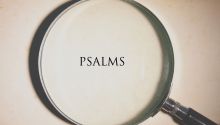 The Book of Psalms
The Book of Psalms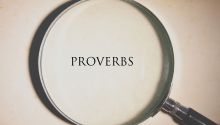 Proverbs
Proverbs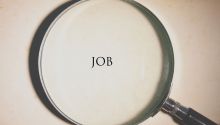 The Book of Job
The Book of Job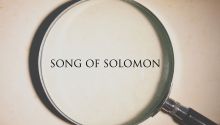 Song of Solomon
Song of Solomon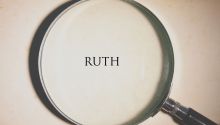 The Book of Ruth
The Book of Ruth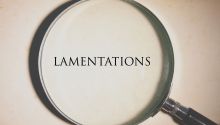 Lamentations
Lamentations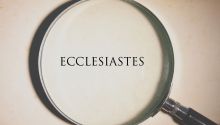 Ecclesiastes
Ecclesiastes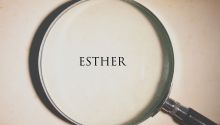 The Book of Esther
The Book of Esther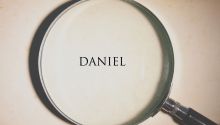 Book of Daniel
Book of Daniel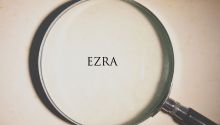 Ezra
Ezra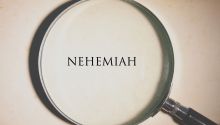 Nehemiah
Nehemiah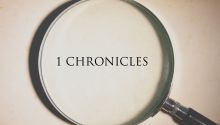 1 Chronicles: Lessons for Us
1 Chronicles: Lessons for Us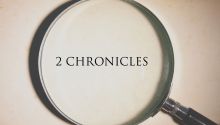 2 Chronicles: Lessons From Judah’s Kings
2 Chronicles: Lessons From Judah’s Kings
_________
Where Is Lent in the Bible?
Transcript from Daily Video at: https://youtu.be/ZsLnzmTEegY
“The Bible shows the truth behind popular customs like Lent.
[Steve Myers] “Christianity has now entered the Lenten season. Mardi Gras is passed, Fat Tuesday into Ash Wednesday, and now the Lenten season is recognized by much of the Christian world. But when you check out what your Bible has to say about Lent, you're not gonna find anything. It's a man-made tradition, and when you recognize what God thinks about counterfeiting his way, it's a very serious thing.
There is a powerful passage in the book of Colossians, Colossians 3:23. This is what God inspired Paul to write. "These things indeed have an appearance of wisdom in self-imposed religion, false humility, and neglect of the body, but are of no value against the indulgence of the flesh."
You see the problem with false Christianity, made up Christianity, false traditions, they do a disservice to God and dishonor him. And when you really check out the basis for these practices, you'll find them rooted in false beliefs, paganism.
I hope you'll take some time to check it out. If you'll search on our website, just type in the words "Lent," and you'll find a number of articles where you can get into the details of how Lent is an imposter, how it is fake, how is it a counterfeit to what the true God wants us to observe. So check it out, I think you'll be surprised by what you find.” From: https://www.ucg.org/beyond-today/beyond-today-daily/where-is-lent-in-the-bible
________
The Truth About Potassium Bromate
 (Image credit: Viktorfischer | Dreamstime)
(Image credit: Viktorfischer | Dreamstime) “In 2007, Chinese authorities pulled a batch of imported snack chips from store shelves because they believed the chips contained potassium bromate, a food additive banned in China. The chips' country of origin? The United States.
Potassium bromate is also illegal in the European Union, Canada, Brazil and elsewhere because it causes cancer in rats and mice. In the United States, however, it has remained legal since it was first patented for use in baking bread, in 1914.
Bread dough's beige and shapeless appearance belies the staggering complexity of the molecules that hold it together. Gluten — the wheat protein infamous for its indigestible components that some people have to avoid — is the glue that binds bread dough to itself. (Gluten-free bread relies on other thickening agents such as xanthan gum).
But in order for two gluten molecules to bind to each other, molecular bridges have to form between them.
Such bridges do not form spontaneously. Rather, they're the product of oxidation. Historically, bakers relied on oxygen in the air to form the molecular bridges in dough — they "aged" flour after milling it by exposing it to open air for weeks, and then slowly mixed the flour in dough, all the while allowing ambient oxygen to do the hard work of bridge building.
But potassium bromate is a powerful oxidizing agent that chemically ages flour much faster than open air. Potassium bromate bleaches dough, and enhances its elasticity by strengthening its network of molecular bridges, which makes for the formation of tiny, thin-walled bubbles as the bread rises. The end product is fluffy, soft and unnaturally white.
Ideally, that end product is also entirely devoid of potassium bromate, which changes to potassium bromide, a harmless byproduct, during baking.
In 1982, researchers in Japan published the first of a series of studies showing that potassium bromate causes cancer in the thyroids, kidneys and other body parts of rats and mice.
As a result of these findings, countries around the world banned the additive, but the U.S. Food and Drug Administration held back, in part because the amount of potassium bromate that remains in bread after baking should be negligible: less than 20 parts per billion (ppb).
According to information published by baking industry trade groups, it is "well within the normal production control measures in any modern bakery to ensure that bromate residues are well below 20 ppb."
However, whenever bromated flour isn't baked for long enough or at a high enough temperature, or if too much potassium bromate is added in the first place, this harmful additive can potentially be found in the final product in far greater quantities.
Today, many small and commercial bakeries voluntarily avoid using bromated flour. However, it's still found in many fast food buns and some flours, among other products.
To avoid this additive, check ingredients lists for "potassium bromate" and "bromated flour." Shoppers in California will have an easier time steering clear of potassium bromate: since 1991, California law has required products containing this additive to bear a warning on their labels.
Pass it on: Potassium bromate is an unnecessary and potentially harmful food additive, and should be avoided.”
From: https://www.livescience.com/36206-truth-potassium-bromate-food-additive.html
_________













No comments:
Post a Comment